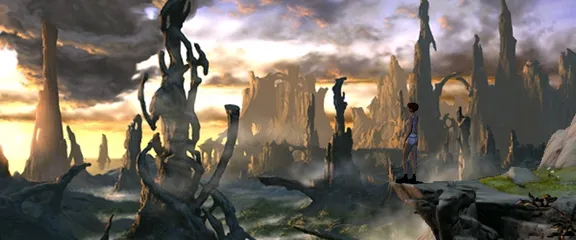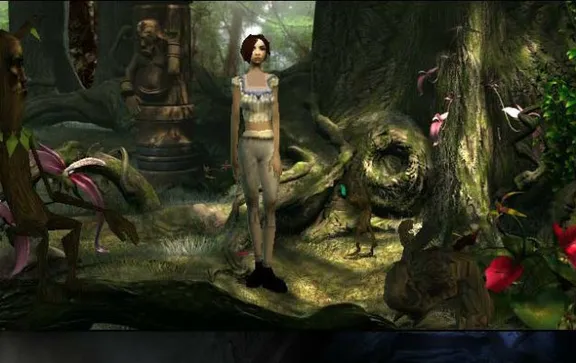The A-Bit-Shorter Journey
The page on GOG.com for The Longest Journey promised A truly epic story and gameplay with more than 50 hours of play time
and while the first part is inevitably true, the game fell quite short on the promise beat the 41 hours I poured on Mass Effect 2 and I was done with Stark and Arcadia in less than 20.

Granted, I did use a walkthrough to solve a couple of the puzzles that perfectly captured one of the reasons the golden age of adventure games came to an end. Even though TLJ belongs to that age of the genre where most of the verbs are dropped and inventory-mixing is little, and there’s no way to get stuck or die in the game, it did still feature very unintuitive little puzzles. I doubt however that the combined time to solve those puzzles would have been 30 hours.
Then again, they were quite tricky.
And no, the game would not have been better had it been 50 hours long. GOG's promise actually scared me from getting The Long Journey for a long time. I’m all for shorter games, which is probably why Telltale Games has had success with it’s episodic format for adventure games. If Funcom ever gets to finish the series, the sequel, Dreamfall, apparently ends on a cliff-hanger, I would imagine it could be episodic as well.
I originally tried The Longest Journey a long time ago, but lost interest quickly to the game. This time around I was determined to complete the game and I remembered exactly where I dropped off last time. There are many moments in the game where I had no idea where to proceed, or what to do – even after reading April’s Diary, which in most cases spelled out what the player was supposed to do next. It was exactly this kind of moment where I left, the story hadn’t unfolded and I was completely lost the first time April goes to Marcuria.

But this is, and was, all normal for the adventure games of its time. TLJ is a very good example of both the good and bad sides of the genre. The game paints a world in a way that no other genre can, but it also depends on pixel-hunting and knowing the conventions of the genre for the player to progress. I did enjoy the puzzles that were scattered in the game and overall the flow was really good, but I’m a veteran.
Now, I did do the same thing for Syberia; I dropped off very early on in the game and this has been nagging me ever since. Should I revisit that game as well? It doesn’t help that both the games have sequels. Maybe I will get around to these, but I think I’m quite spent on the genre right now.
This post was originally posted on Business Analyst Playing Game>. I ended up doing the same thing with Syberia. Haven’t touched either games’ sequels yet, though.